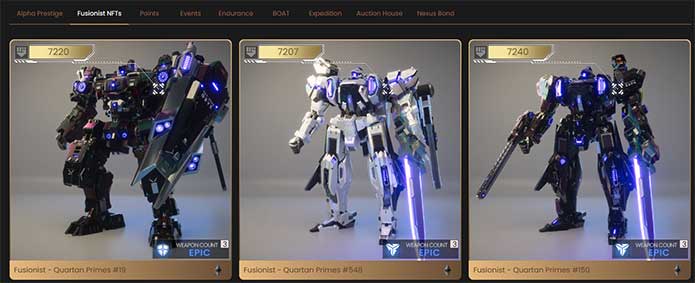The gaming industry is a rapidly growing sector with a global market projected to hit $257 billion by 2025, from $159 billion in 2020. Several factors, including a rise in mobile game adoption, increased popularity of esports, technological advancements, and efficient monetization strategies, are expected to expand the industry’s monetary worth. As gaming evolves, its synergy with technology increases, creating opportunities for integration with other sectors like cryptocurrency and blockchain technology.
Cryptocurrencies have a wide range of uses, such as payments, governance, and remittances. One of the most common uses is investment, especially through presale events, where people can buy at low prices and earn significantly after the token’s public listing. These events are easy to find and are available on social media, presale listing websites, and dedicated crypto YouTube channels for easy access. (Source: https://www.valuewalk.com/cryptocurrency/best-cryptocurrency-presales/). Nonetheless, cryptocurrency has spread past finance to the gaming sector, where it has increased efficiency and helped players and creators earn significantly.
Crypto Meets Gaming
 Blockchain games have broadened the use of cryptocurrencies in gaming. Introducing blockchain to the gaming industry has given rise to the play-to-earn (P2E) model that allows players to earn cryptocurrencies by participating in games and completing milestone tasks. These decentralized ecosystems support crypto payments and promote the use of non-fungible tokens (NFTs) so that players can truly own assets and earn from trading them.
Blockchain games have broadened the use of cryptocurrencies in gaming. Introducing blockchain to the gaming industry has given rise to the play-to-earn (P2E) model that allows players to earn cryptocurrencies by participating in games and completing milestone tasks. These decentralized ecosystems support crypto payments and promote the use of non-fungible tokens (NFTs) so that players can truly own assets and earn from trading them.
Popular blockchain gaming options include CryptoKitties, Decentraland, and Axie Infinity. At its peak, Axie Infinity was a legitimate source of income for many players in several countries. According to a report, a Venezuelan player used earnings from Axie Infinity to cover family expenses and pay off years of debt. This model has spread to more traditional games like Call of Duty and Fortnite, both of which have explored NFT integration so their players can monetize gameplay.
In addition to the P2E model, cryptocurrency is a trusted option for established gaming platforms. Large gaming stakeholders like Microsoft and Steam have explored accepting crypto payments for game purchases, indicating a much stronger acceptance of digital assets in the gaming sector.
Crypto Brings Perks to Gaming
 The current state of crypto-focused gaming foretells a future where the integration of both industries will be more widespread. Deeper integration with crypto promises exciting benefits for the gaming sector in the following ways:
The current state of crypto-focused gaming foretells a future where the integration of both industries will be more widespread. Deeper integration with crypto promises exciting benefits for the gaming sector in the following ways:
- New Streams of Revenue: Players can enjoy new revenue streams from P2E models when they receive crypto or NFT rewards for specific milestones. They can also earn from selling NFTs created or received as rewards. In many blockchain games, these NFTs are transferable to public crypto exchanges, which opens the seller to more potential buyers. Interestingly, the new streams of income also benefit developers as they can find more ways to monetize their games to ensure continuous earnings for extended periods.
- Enhanced Security: Using blockchain technology improves transparency and security in gaming transactions. Since the blockchain is decentralized, transactions recorded on the public ledger are easily accessible, reducing the risk of fraud. Furthermore, the blockchain is tamper-proof and does not allow users to edit transactions or identify wallet owners. This advantage is essential in gaming scenarios like crypto gambling, where players, especially those with large bankrolls, prioritize privacy and security.
- Global Gaming Community: Crypto use in gaming helps to foster a global gaming community. For instance, an in-game NFT marketplace helps holders sell their assets to players worldwide, directly encouraging cross-border social engagement in the game’s ecosystem.
Challenges
Developers, players, and all other gaming community members interested in crypto integration must also consider a few challenges. For instance, the lack of regulatory clarity can stifle this integration because it makes developers reluctant to provide crypto support due to legal complications. There are also scalability issues to worry about because blockchains sometimes have congestion problems. This means that global acceptance for crypto games may not be sustainable if the blockchain becomes slow with traffic or transaction fees skyrocket.


 by Symphonie
by Symphonie